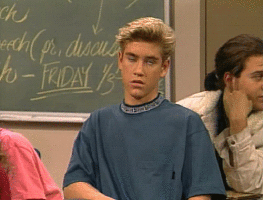I didn't even have to think. My table group turned to me, and without thinking I blurted out the words "hoverboard wheelchair".
They laughed. Obviously. But I honestly hadn't been expecting them to: I mean, imagine the possibilities! A hoverboard wheelchair could traverse rough surfaces at speed, it could get you up and down random ledges smoothly, and if the hover-technology was strong enough, it might even be able to make it up a flight of stairs. And yet the people around me didn't really seem to see it as massively important.
The teacher called an end to the conversation, and people started to give their answers. Food that could be grown in famine-ridden countries. A way of ending global warming. Negotiating world peace. And the more I heard other people's points of view, the more I felt kind of selfish.
These other suggestions would quite possibly save the entire world. And there I was, aiming my invention towards a fairly small percentage of the world, and, if I was perfectly honest, mostly trying to help myself.
When I got home, I thought about this some more. Making it easier for disabled people to access the world doesn't seem like a terrible idea, so what was it that made the hoverboard wheelchair funny, rather than a brilliant idea?
Eventually, I came to the conclusion that I was just trying to go about it the wrong way. And ... that's where the curb cut effect comes in.
 |
| A pavement on a London street |
The first curb cuts can be traced back to the 1960s, to a group of disabled civil rights campaigners from UC Berkeley in California, who are some of the most badass people I've ever come across in my research on disability history. Their de facto leader, Ed Roberts, had polio, and he's basically the embodiment of my personal motto, "with great skill and not much responsibility". They fought bitterly with university authorities and local governments to have kerb cuts put in reliably around campus and local roads. They quite literally went out under cover of darkness with spades and concrete to make their own. If you want to know the whole history of the thing, 99% Invisible did a brilliant podcast, but the point is that curb cuts were only ever intended to help the small but significant minority of disabled people in the area, and as time went on the world.
Nowadays, they are typically referred to in Australia as pram ramps.
 |
| An artsy shot of a pram |
When an accommodation intended for a particular group in society (be that disabled people, specific races, or religions or whatever) becomes useful for the population as a whole, this is often a really good thing because it is available without any kind of policing. Yes, you do need to qualify for some adaptations, because some resources are scarce, but for things like curb cuts universality is a massive advantage. In the case of disability adaptations, it can let people who haven't been diagnosed - or don't even know they have a disability, as is common for certain processing issues - navigate the world without fighting a ton of bureaucracy or feeling like something is intrinsically wrong with them. Universality can also be a lifesaver for people with temporary injuries, since it reduces the amount of hoops they have to jump through to a level which is manageable in the short amount of time they need help for.
And that brings me back to my hoverboard wheelchair, because once my crack team of geniuses had developed the technology, it'd probably be really expensive, a lack of supply chains would make it difficult to roll out worldwide, and a bunch of other factors would mean that a very small proportion of the people it could possibly help in the world would actually get their hands on one. As the inventor, I'd have it made, but very few other people would, and that's what made the idea seem selfish.
Instead, I'd take my team of geniuses and I'd spend decades going around the world. I'd resurface uneven pavements and give cash to every local authority just for keeping them smooth for as long as possible. I'd go into every listed building and work with historical conservationists to create a lift that would make every floor accessible without upsetting the old architecture. I'd work with the disability community in various towns and cities to install large disabled toilets with hoists and changing beds.
I'd change the environment, not the equipment the disabled person has to carry around with them. Just imagine the amount of people who I - we, the world - could help with that approach.
And just think. When humanity had that option - the right minds, the necessary resources - in the 1940s, they built the first atomic bomb.
***
In the comments: What do you guys think of this more article-style form of post? Would you like to see more of them in the future? And what do YOU think curb cuts can tell us about how to treat minority or discriminated against groups in the future?



































